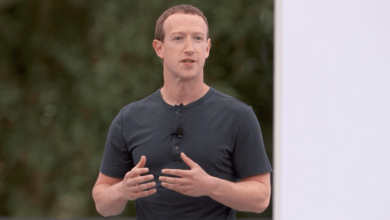Perplexity details plan to share ad revenue with outlets cited by its AI chatbot
Perplexity AI will soon start sharing advertising revenue with news publishers when its chatbot surfaces their content in response to a user query, a move that appears designed to assuage critics that have accused the startup of plagiarism and unethical web scraping. Dmitry Shevelenko, Perplexity’s head of business, told TechCrunch that the company was actually exploring the program in January, before publishers started leveling accusations. The business case for the publisher program was self-preservation: if Perplexity is going to continue to surface accurate answers to user queries, it will need journalists to continue producing new facts about the world. “How…
Google Maps adds a slew of features to entice Indian drivers, commuters and travelers
Google is adding a slew of new features to Google Maps in India as it seeks to attract more users by customizing its service to serve the country’s unique needs and serve more use cases. Notably, Maps is getting an AI model that helps drivers better navigate flyovers (overpasses) and narrow roads in India. The company is also partnering with a government-backed initiative to let commuters book local train and metro tickets from within the Maps app. The app is even getting a feature that will surface curated lists of popular places one can visit in certain cities. Navigation features…
Google releases new ‘open’ AI models with a focus on safety
Google has released a trio of new, “open” generative AI models that it’s calling “safer,” “smaller” and “more transparent” than most — a bold claim, to be sure. They’re additions to Google’s Gemma 2 family of generative models, which debuted back in May. The new models, Gemma 2 2B, ShieldGemma and Gemma Scope, are designed for slightly different applications and use cases, but share in common a safety bent. Google’s Gemma series of models are different from its Gemini models in that Google doesn’t make the source code available for Gemini, which is used by Google’s own products as well…
A new Chinese video-generating model appears to be censoring politically sensitive topics
A powerful new video-generating AI model became widely available today — but there’s a catch: The model appears to be censoring topics deemed too politically sensitive by the government in its country of origin, China. The model, Kling, developed by Beijing-based company Kuaishou, launched in waitlisted access earlier in the year for users with a Chinese phone number. Today, it rolled out for anyone willing to provide their email. After signing up, users can enter prompts to have the model generate five-second videos of what they’ve described. Kling works pretty much as advertised. Its 720p videos, which take a minute…












